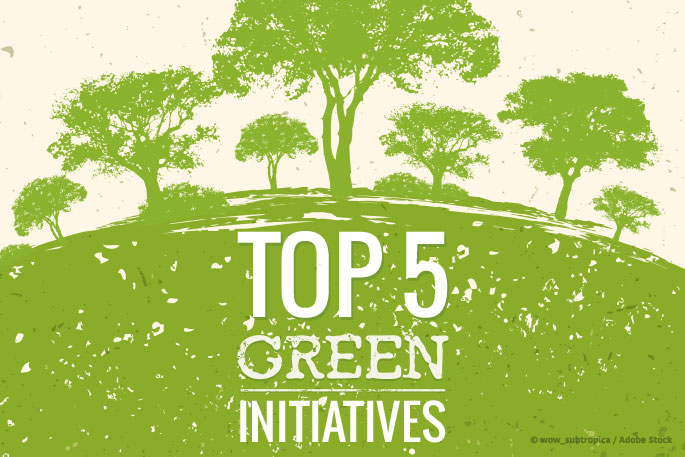
Here are this month’s Top 5 Roundup on New Sustainable Initiatives making the news – some turned industries on their ear with new schools of thought, while others have progressed to whole new levels.
Highlighting this month’s stories:
- The global economy needs to undergo massive shifts in how capital is allocated
- Transitioning to a low carbon economy will require around $90 trillion in new infrastructure over the next 15 years, according to the bank. International Energy Agency
- Estimates say keeping global warming below 2 degrees Celsius will require on average US$3.5 trillion a year in energy investment until 2050 when today’s 29-year-olds will be 61. (1)
After looking at it, it’s clear that there could be some impacts for all of us…
Sustainable Financing for Sustainable Activities
After the global financial crisis that impacted almost everyone on some level, central banks are actively engaging in rebuilding, restoring and stabilizing the banking industry. The lobby to implement penal systems for “carbon-intensive” assets and utilize those funds to help companies transition to greener, environmentally-focused and cleaner operations is in progress, and these banks are taking active roles, implementing forward-thinking sustainability agendas for companies globally.
ING, one of the world’s leading financiers, has created sustainable teams (Wholesale Banking) to support businesses with sustainable agendas. Their efforts are focused on identifying sustainable clients and matching them up with internal/externals experts help them meet those agendas.
Philly’s 2M Grant
Twenty cities across America were part of the Bloomberg American Cities Climate Challenge. Philadelphia was proudly given a 2M grant “because of [its] innovative and ambitious climate action plans to reduce air pollution and city-wide emissions,” WHYY reported. Philly’s city projects in the transit and building sectors are currently responsible for 80% of Philly’s GHG emissions.
Another 17% of the GHG emissions are generated by Philadelphia’s 3,000 largest commercial buildings. CONNECT, Philly’s new transportation system to be completed by 2025, is designed with a focus on traffic reduction and will provide affordable AND efficient transportation to everyone.
Focusing on transportation, waste management, and sustainability, New College House, which is a part of Pennsylvania’s Climate Action Plan 2.0, was built in 2017. Recently, Penn Sustainability also launched its ‘ReThink Your Footprint‘ campaign that focuses on minimizing waste and raises awareness on sustainability.
Arla Foods
Arla UK 360, a new standard in the United Kingdom’s dairy farming, will benefit the public. Incorporating best practices in all animal health and welfare issues, the Arla UK 360 Program includes all aspects for building a responsible, profitable dairy farm business. As the program name suggests, it is also involved in all aspects of dairy farming, including environmental and natural resources, people development, economic resilience, and community engagement.
Brandon Nguyen
When he was only 15 years old, Brandon Nguyen founded the Toronto Coalition of EcoSchools. His extensive knowledge about environmental education helped him partner with NGOs and professors to host community programs, delivering his passionate message. He represented the coalition at the 2016 UN Youth Assembly and at 18 years old, is currently the Chairman of its Board of Directors. Brandon represented 330,000 youth as the only high school executive on the Toronto Youth Cabinet from 2016-2017.
Recognized for his experience in environmental education, Brandon attended the 2017 UNLEASH Innovation Lab in Denmark; there, along with 129 other delegates, he was instrumental, in developing insights/solutions to the UN’s Sustainable Development Goals.
Nguyen has many Recognitions to his name. The Starfish Canada named Brandon as a Top 25 Environmentalist Under 25 and the Global Environmental Education awarded him with 30 Under 30 recognition by the N.A.Assoc. or Environmental Education and the Global Environmental Education Partnership.
Brandon imparts this wisdom to all: “My advice to someone trying to make a difference would be to be adaptive in your plans. It’s sometimes easy to get lost in the details of the larger scheme. Know your end goal, but understand that there [are] an infinite number of paths to get there.”
Litterless lunch healthier, eco-friendly
Litterless lunch: Healthier eats, cheaper treats, and earth friendly too
67 pounds of waste per school year/per child. That is the amount of disposable lunch waste an average student generates. A class of 25 students, produce 1,625 lb waste each year. Exponentiate this to 100 classes…well, you get the idea.
Litterless lunch goes beyond food waste. The focus here is to avoid single-use plastics, reduce GHG produced in the manufacturing and transport of single-use food packaging, encourage the use of reusable totes and recycle bottles, cans, and jars and any other recyclable materials.
Additionally, any leftovers go back home – this raised parent awareness and after much discussion, it became evident that the lunch break wasn’t long enough for students to finish eating – the breaks were extended. Such a simple solution.
The companies and people featured in these articles are everyday people who aren’t satisfied just talking about the world’s problems. Most aren’t looking for the limelight. The one thing they have in common though is that they’re doing something to solve them – one small step at a time, in teams or on their own. Those who work in government agencies and big companies can affect change on a much bigger scale. Others may be entrepreneurs who are willing to not only to stake their money but also their reputations on ideas to make the world a better place.
(1) https://www.corporateknights.com/channels/leadership/unafraid-meet-2018s-top-30-30-sustainability-15415345/











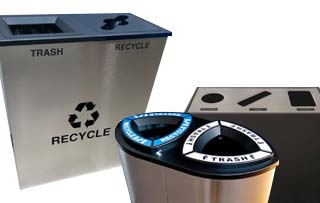









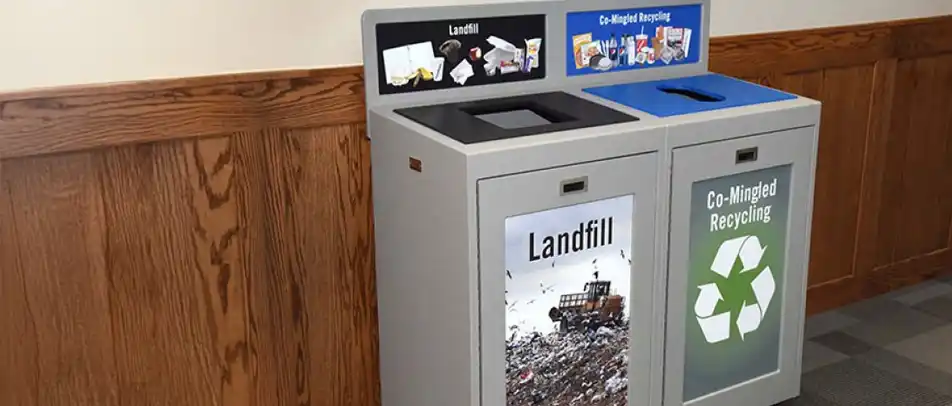










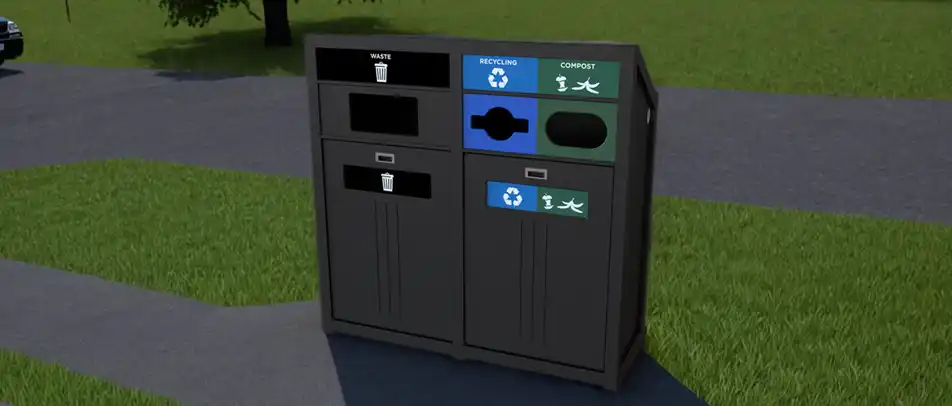












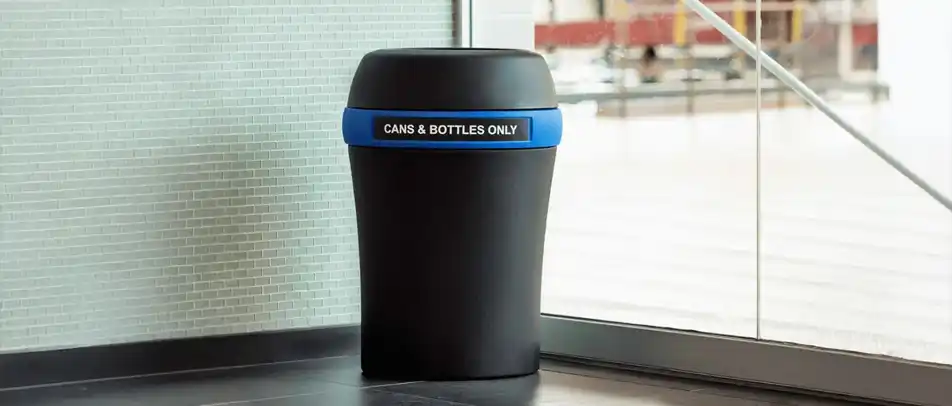









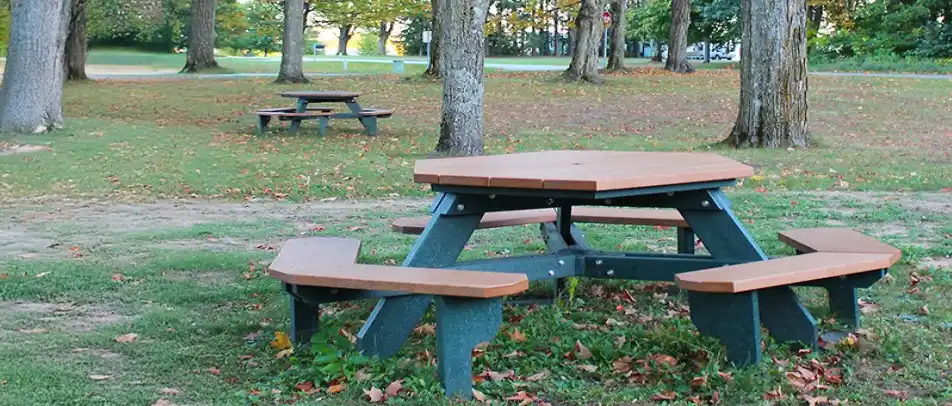
































 Three Ways to Engage Teams and Clients to Maximize Your Recycling Program Engagement
Three Ways to Engage Teams and Clients to Maximize Your Recycling Program Engagement  How to Integrate Accessibility Into Your Sustainability Planning
How to Integrate Accessibility Into Your Sustainability Planning  Why Park Benches Can Promote Workplace Well-Being
Why Park Benches Can Promote Workplace Well-Being 
